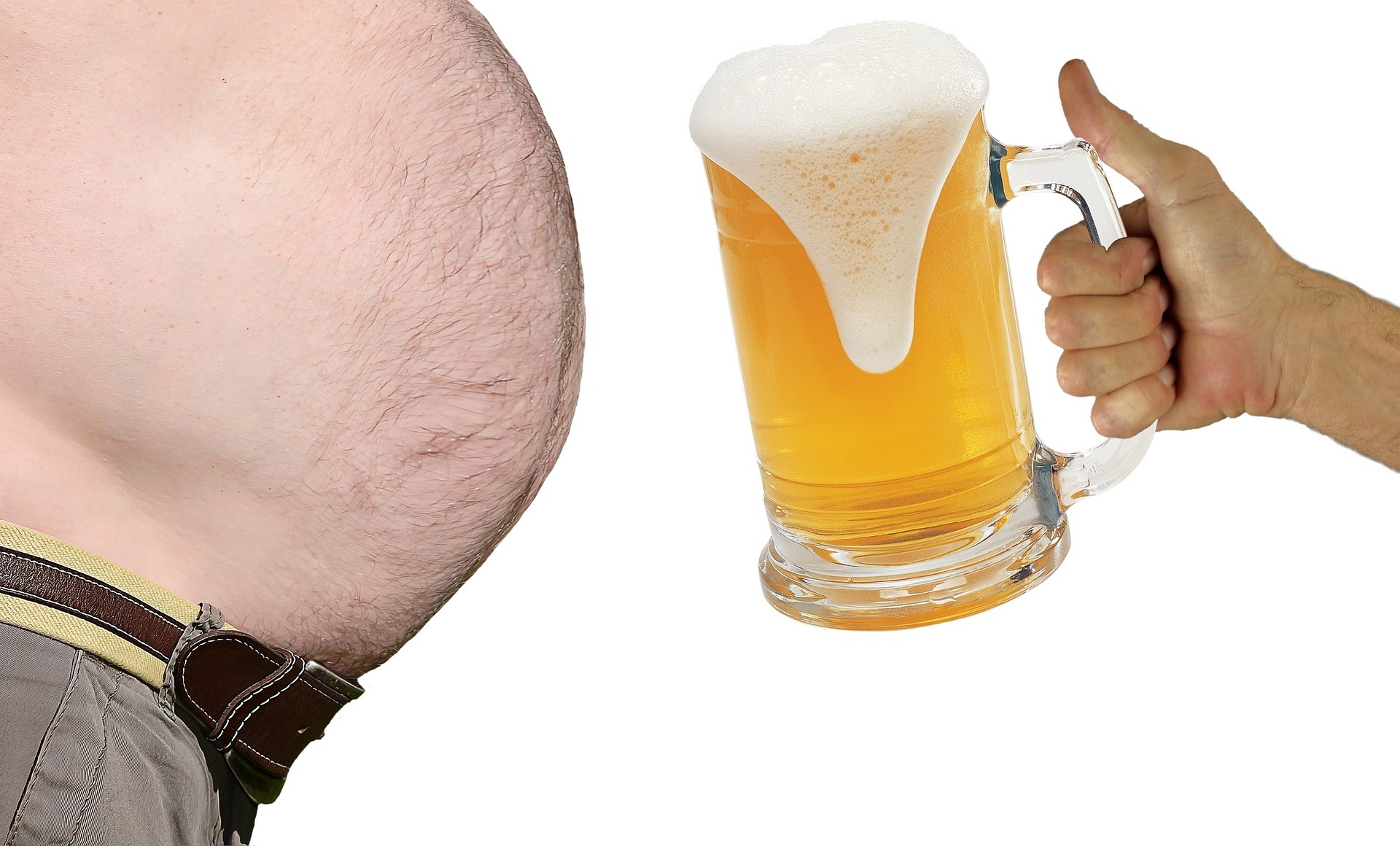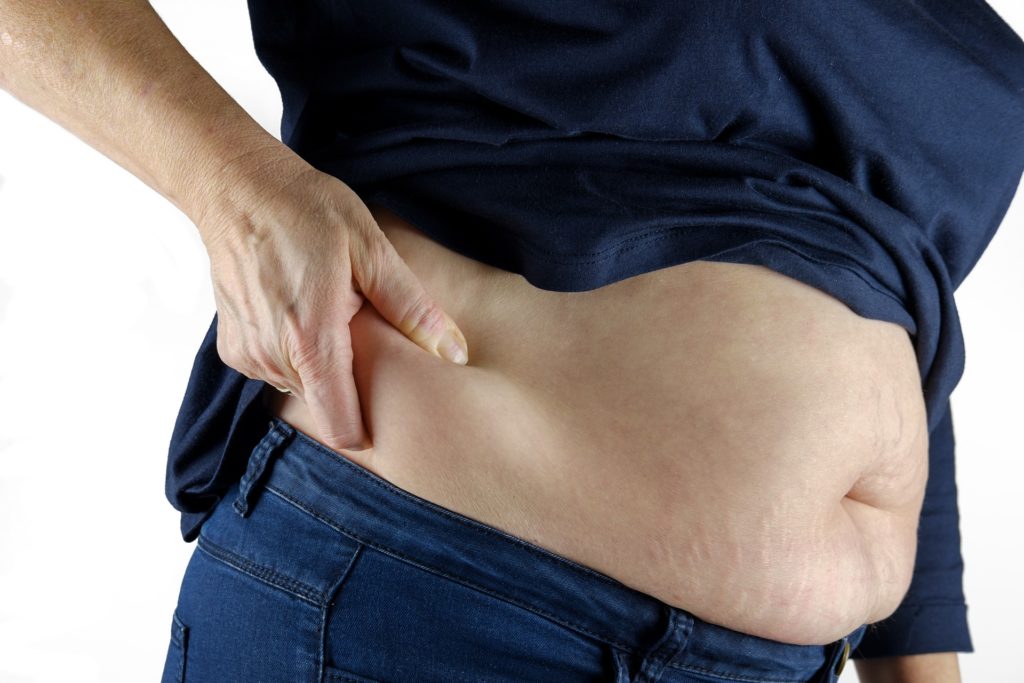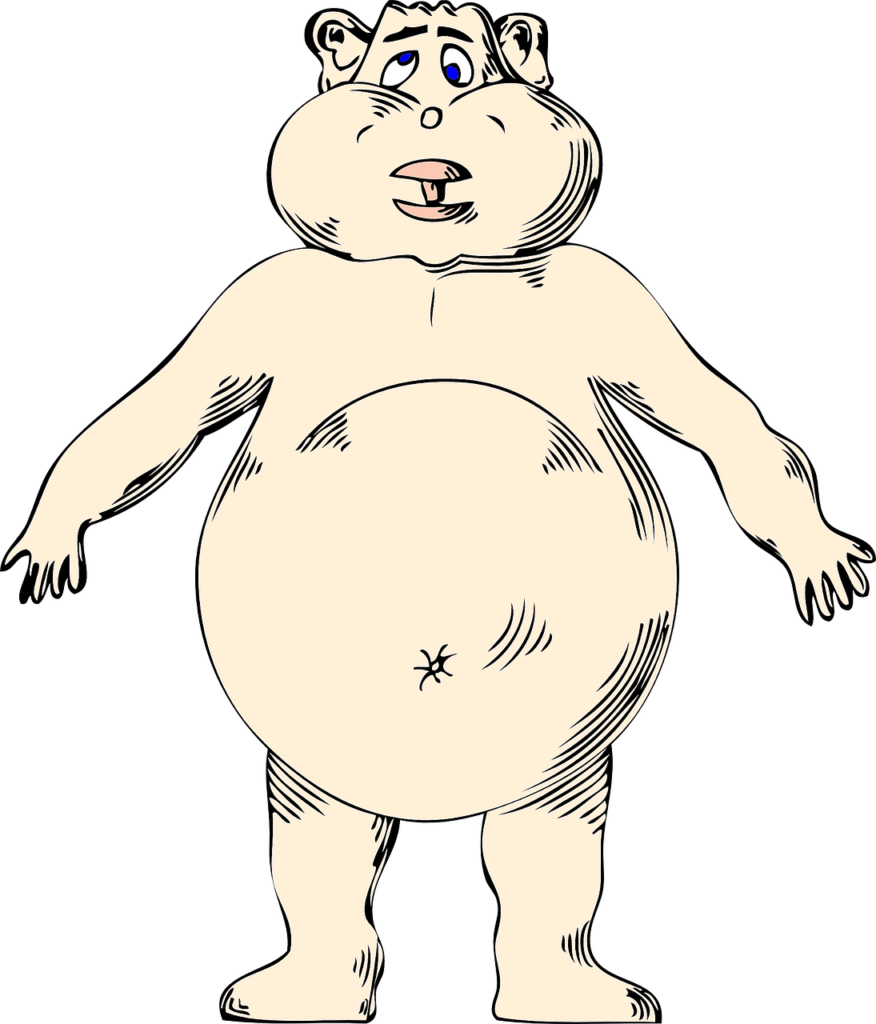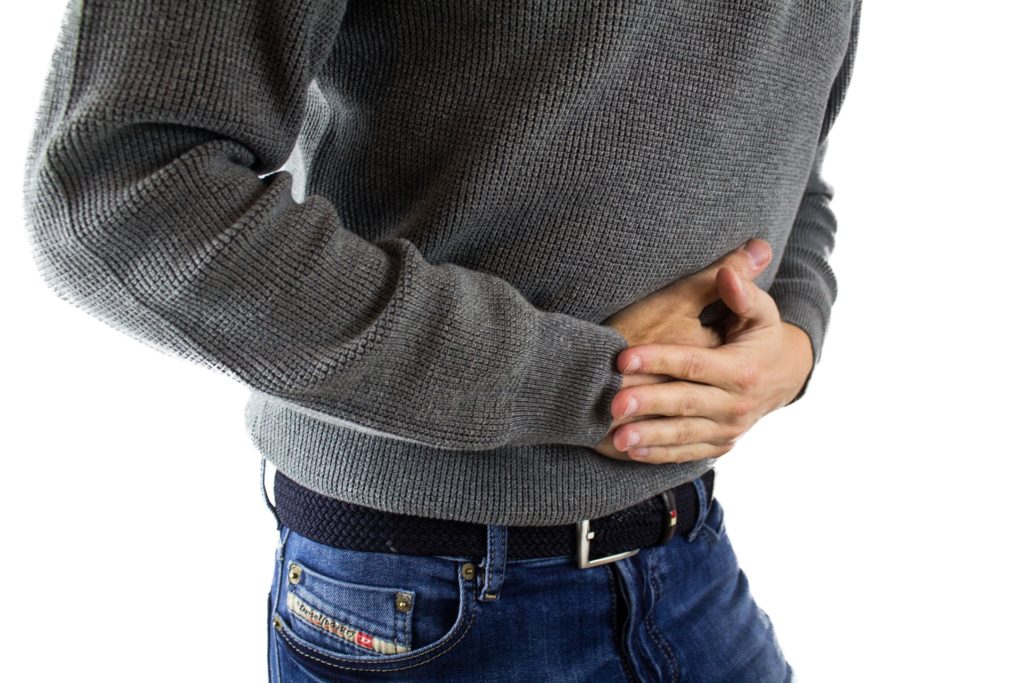Reasons Behind Your Bloated Stomach
Bloating can be very annoying and make you feel uncomfortable, embarrassed, and self-conscious.
It’s important to deal with bloating not just for how you look, but also for your health and weight control. In this article, we’ll look at some surprising reasons why you might have a bloated stomach and give you some easy but effective ways to get rid of it for good.
1. What Does Bloating Mean?
Bloating is a common digestive problem that makes you feel full and tight in the stomach area.
This can cause the stomach to swell and make a lot of gas. Many things can cause bloating, such as eating too much, swallowing air, food intolerances, constipation, GI disorders, and eating too quickly.
It can make someone feel uncomfortable and even hurt their confidence and self-esteem. But bloating can be effectively managed if you know what causes it and use certain techniques to get rid of it.
Why it’s important to deal with bloating for your health and weight
Getting rid of bloating is important not only for how you look and feel but also for your health and weight. Chronic bloating can be a sign of a deeper health problem, like Irritable Bowel Syndrome (IBS) or lactose intolerance. To improve health, it is important to treat the underlying cause.
Also, bloating can make it hard to control your weight because it can make you feel uncomfortable and make you less active. By doing something about bloating, people can improve their digestion, feel less pain, and stay at a healthy weight. So, it’s important to take steps to deal with bloating if you want to stay healthy and well.
2. What Makes You Bloat?
- Eat too much and swallow air
Bloating is often caused by eating too much or swallowing too much air.
When you eat too much, your stomach has to work harder to break down the food, which can make you feel full and bloated.
When you swallow air while eating, drinking, or even talking, it can get stuck in your digestive system and make you feel bloated.
It is best to eat smaller meals more often throughout the day instead of big meals to avoid getting bloated from eating too much.
To avoid swallowing air, you should eat slowly and avoid talking, drinking through a straw, and chewing gum while you eat. Simple changes like these can make a big difference in how much you bloat.
- Food intolerances (e.g. lactose, fructose)
Bloating can also be caused by not being able to digest certain foods, like lactose or fructose. Lactose intolerance is when the body can’t break down lactose, a sugar found in dairy products. Fructose intolerance is a condition in which the body can’t break down fructose, a type of sugar found in many fruits, vegetables, and processed foods.
When these sugars aren’t broken down properly, they can ferment in the gut, which can cause bloating, gas, and other stomach problems. Food intolerances can cause bloating, so it’s best to figure out which foods cause it and avoid or limit them. There are also lactase and fructose supplements that you can buy without a prescription that can help with digestion.
- Constipation
Bloating can also be caused by not having a bowel movement. If you don’t get rid of your stools often enough, they can harden and build up in your colon, causing bloating and pain in your stomach.
Constipation can cause bloating, which can be lessened by getting enough fibre, drinking a lot of water, and staying active.
Also, you can buy laxatives over-the-counter to help regulate bowel movements and relieve bloating caused by constipation. Before starting a new treatment, it is important to talk to a healthcare provider to make sure it is safe and fits the person’s needs.
- Gastrointestinal disorders, such as Irritable Bowel Syndrome (IBS)
Bloating can also be caused by problems with the digestive system, such as Irritable Bowel Syndrome (IBS). IBS is a common digestive disorder that causes stomach pain, bloating, gas, diarrhoea, and constipation. IBS is not completely understood, but it is thought to be caused by many things, such as food intolerances, stress, and changes in gut bacteria.
IBS can cause bloating, so it’s best to deal with stress, eat and live healthily, and keep a food diary to figure out what foods cause it. In some cases, IBS and related bloating may need to be treated with medicine and/or therapy. Talking to a doctor is important to get a correct diagnosis and a personalised treatment plan.
- Eating Too Quickly
Eating too fast can also make you feel full. When you eat too quickly, you are more likely to swallow air, which can get stuck in your digestive system and make you feel bloated.
Also, eating too quickly can cause you to eat too much because your brain doesn’t have enough time to get signals from your stomach that you’re full. Slow down and enjoy each bite if you want to avoid getting bloated from eating too quickly.
Try putting your fork down between bites, drinking water between bites, or counting to 10 before taking another bite. Simple changes like these can help reduce bloating and improve digestion as a whole.
3. Symptoms of Bloating
- Abdominal swelling
One of the most obvious signs of being full is a swollen stomach. This can happen in any part of the belly, making clothes feel tight or uncomfortable. Bloating usually causes other symptoms, like gas, pain, and the feeling of being full, as well as swelling in the stomach.
If the bloating is severe or lasts for a long time, you should talk to a doctor or nurse to get a proper diagnosis and treatment plan.
- Excessive Gas
Another common sign of being bloated is having too much gas. When gas builds up in the digestive system, it can lead to discomfort, bloating, and even pain. Burping or flatulence can also happen when you have too much gas.
In some cases, the gas may also come out of the body through the rectum.
If you have a lot of gas and other symptoms, like diarrhoea or not going to the bathroom, it’s important to talk to a doctor to get a proper diagnosis and treatment plan.
- Tightness or Fullness in the Stomach
Another common sign of bloating is feeling tight or full in the stomach. This feeling can be mild or very strong, making it hard to get comfortable. This feeling of fullness or tightness can also be accompanied by other symptoms, such as gas, swelling in the abdomen, and pain.
If you feel like your stomach is tight or full for a long time or if it hurts a lot, you should talk to a doctor to get a proper diagnosis and treatment plan.
- Pain or Discomfort
Another common sign of bloating is pain or discomfort. This pain can be mild or severe, and it can happen anywhere in the abdomen. Bloating can cause pain or discomfort, but it can also cause other symptoms, such as abdominal swelling, too much gas, and a tight or full feeling in the stomach.
If the pain or discomfort lasts for a long time or is very bad, you should talk to a doctor or nurse to get a proper diagnosis and treatment plan.
Related articles:
Five Foods That Fight Belly Flab
4 Essential Tips For Quick Weight Loss
Your Thyroid And Weight Loss The Connection Is Real
11 Health Benefits Of Fruit And Vegetable Smoothies
4. Proven Solutions to End Bloating
- Avoid foods that trigger bloating (e.g. beans, broccoli, cabbage, onions)
One of the best ways to stop bloating is to stop eating foods that make it happen. Beans, broccoli, cabbage, onions, and carbonated drinks are all common foods that can cause bloating. It’s important to keep track of what you eat and how it affects your digestion.
If you find out that certain foods make you feel bloated, it’s best to limit or cut out these foods from your diet. Also, eating more fruits and vegetables, which are high in fibre, can help improve digestion and reduce bloating.
It’s important to remember that what makes one person bloat may not make another bloat, so it’s best to listen to your body and figure out what makes you bloat.
- Practice good digestion habits (e.g. chew food thoroughly, eat slowly)
Another effective way to stop bloating is to get into the habit of digesting food well. This means chewing food well and taking your time while eating. When you chew your food well, you break it up into smaller pieces, which makes it easier for your body to digest.
When you eat slowly, you can enjoy each bite, which can help you take in less air, which can make you feel bloated. Taking the time to sit down and enjoy your meal can also help you feel less stressed and help your body process food better.
Drinking a lot of water throughout the day can also help get rid of excess salt and keep the digestive system working well. Avoiding big meals and eating several smaller meals throughout the day can also help prevent bloating and improve digestion.
- Stay Hydrated
Another important way to stop bloating is to drink enough water. Drinking enough water keeps the digestive system working well and can help flush out excess salt, which can cause bloating.
Aim to drink at least 8 glasses of water a day, or more if you are active. Herbal teas, like peppermint tea or ginger tea, can also help calm the digestive system and relieve bloating. It’s also best to stay away from caffeine, alcohol, and carbonated drinks, which can make you feel dehydrated and cause bloating.
- Exercise Regularly
Another way to stop bloating is to work out regularly. Regular exercise can help you digest food better, feel less stressed, and get rid of bloating. Cardiovascular exercise, like running or cycling, and strength training, like lifting weights, can help improve digestion and increase blood flow.
Gentle exercises like yoga and Pilates can also help reduce bloating by making you feel more relaxed and stretching your abdominal muscles.
When you first start working out, it’s important to pay attention to your body and not push yourself too hard.
Getting more active and finding an exercise you enjoy can help you make exercise a regular part of your life, which is good for your health and will help you feel less bloated.
- Try Over-the-Counter Anti-Gas Remedies (e.g. simethicone)
Using over-the-counter gas-relief medicines like simethicone can be a good way to stop feeling bloated.
Simethicone works by breaking up gas bubbles in the stomach, which can relieve bloating and pain.
There are many different brands and forms of simethicone, such as tablets, caplets, and liquids. This makes it easy to find the right form for your needs.
Before taking any over-the-counter medicines, you should talk to your doctor, especially if you are pregnant or have any other health problems.
Also, over-the-counter medicines can’t replace a healthy diet and lifestyle, so it’s important to figure out what’s causing your bloating and make changes to improve digestion and your health as a whole.
- Consult with a Healthcare Provider for Underlying Medical Conditions
Bloating can sometimes be a sign of a deeper health problem, like IBS, lactose intolerance, or a digestive disorder.
If you’ve tried the solutions above and are still feeling bloated, you should talk to a doctor.
Your doctor can do tests to find out if your bloating is caused by an underlying medical condition and give you the right treatment and care.
Don’t be afraid to see a doctor if you have bloating that doesn’t go away or if it comes with other symptoms like fever, abdominal pain, or a lot of weight loss. Early diagnosis and treatment can help you feel better and live a longer, healthier life.
Conclusion
- A Summary of What Causes Bloating and How to Fix It
Bloating can be annoying and uncomfortable, but there are ways to stop it that work. Bloating is often caused by eating too much, swallowing air, food intolerances, constipation, GI disorders, and eating too quickly.
To stop bloating, you can avoid foods that make it worse, practise good digestion habits, stay hydrated, work out regularly, try over-the-counter remedies for gas, and talk to a doctor about any underlying medical conditions.
Getting rid of bloating is important for your overall health and for keeping your weight in check.
When your stomach is full, it can be hard to feel comfortable, and you might be tempted to eat something unhealthy to feel better. By doing things to stop bloating, you can help your digestion, get more energy, and get to a healthy weight.
We hope that the solutions in this article will help you stop feeling bloated and improve your health and quality of life as a whole. We want you to try these solutions and see for yourself how well they work. You can feel confident and comfortable in your skin and enjoy all the benefits of a healthy lifestyle if you take action.
Bloating is common, but it doesn’t have to be a long-term problem. By following the steps in this article, you can stop getting bloated and lead a healthy, happy life. We want you to start taking care of your health and wellness right away so you can enjoy the benefits. Don’t be afraid to talk to your healthcare provider if you have any questions or need more help.






